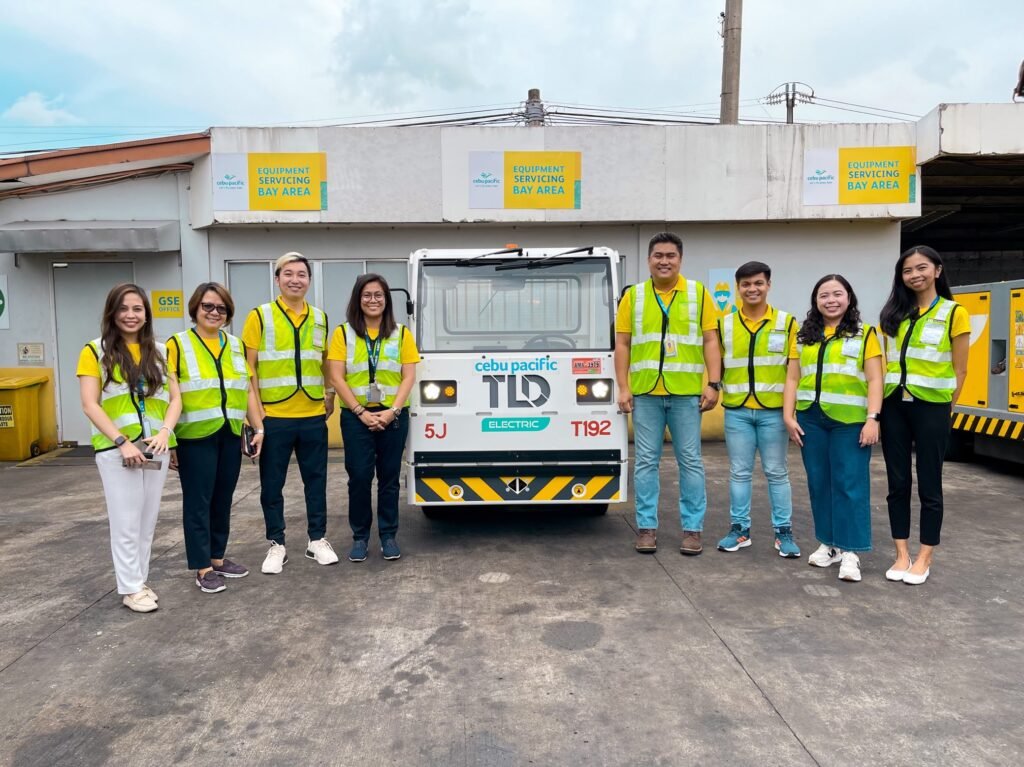As part of its ongoing electric vehicles (EV) transition program, Cebu Pacific (PSE: CEB), the Philippines’ leading airline, is commissioning this quarter a demonstration run for an electric baggage tractor and charging station.
Baggage tractors are essential equipment used by airlines for towing carts and dollies in their ramp operations. CEB operates more than 100 units of baggage tractors, one of the highest numbers in the airline’s fleet of ground support equipment (GSE).
The 100% electric, zero-emission tractor will be operated and tested for CEB’s ground operations at Terminals 3 and 4 of the Ninoy Aquino International Airport (NAIA) in Manila. The target this year is to bring in several units of electric baggage tractors for deployment at NAIA.
“Our objectives for this demo run are multipronged. Since electric vehicles are a relatively new area for CEB, we want to test the technology and its operational viability and safety. We also intend to test the demo unit for various scenarios in our ground operations, so we are deploying it for both airport operations and cargo operations over the demo period,” said Javier Massot, CEB’s Chief Operations Officer.
The electric baggage tractor and charging station demo units are provided by TLD Asia Limited (TLD). It uses lithium-ion batteries, which have a significantly longer life compared to previous-generation lead acid batteries. The charging station unit is a fast charger that is also provided by TLD.
TLD is a subsidiary of Alvest, a group that designs, manufactures, and distributes technical products for the aviation industry.
CEB is expecting one more electric baggage tractor demo unit to arrive from another GSE original equipment manufacturer (OEM), which is also targeted for deployment in July.
The learnings and experience from the demo runs will be crucial inputs to CEB’s long-term strategy to transition its ground transportation network to electric, zero-emission alternatives. The EV program is an important component of CEB’s commitment to manage and reduce the environmental impact of its operations.
“CEB’s Scope 1 emissions come from our flights and ground operations. Although emissions from our GSEs, as part of our ground operations, are only a small portion of our total Scope 1, our decarbonization strategy addresses the entire emissions from our value chain. This is necessary as we align with net-zero by 2050 emission reduction goals,” said Alex Reyes, Chief Strategy Officer for CEB.
Earlier this year, CEB rolled out its EV service for employees with the deployment of the 100% electric COMET vehicles from GET Philippines, Inc.
For its flight operations, CEB continues to take new deliveries of fuel-efficient aircraft from Airbus, with 10 brand new aircraft scheduled for 2023, and five additional aircraft via long-term lease.












